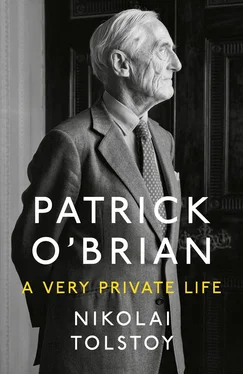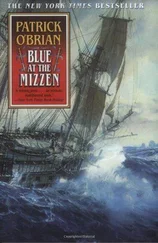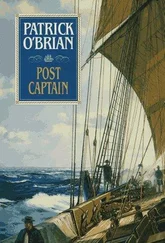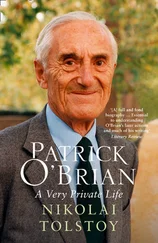The year 1954 opened with an accruing worry inflicted on the hard-tried couple, whose financial situation remained precarious as ever. Patrick’s son Richard had always encountered difficulty with academic work. He would be seventeen in February, and the time had approached when he must consider a career. His ambition to enrol at the Royal Naval College at Dartmouth having proved sadly abortive, it became essential to find a satisfactory alternative. It was a worrying prospect, not alleviated when on 15 January my mother noted: ‘R’s report came: very sad.’
However, their overriding concern was with his well-being. Richard and his friend Bob Broeder had become cycling enthusiasts, which involved them in many adventurous exploits – of which their parents fortunately remained unaware. On occasion they would ride as far as Brighton, a hundred-mile round journey, and took to recklessly hurtling at some 60 mph down precipitous Reigate Hill, after removing their brakes. Bob recalls that:
One of our many dangerous [feats] and in retrospect foolish to the extreme, was to slip stream motor vehicles on our bicycles – normally lorries. Our favourite was to sit in wait for a BOAC coach coming from Heathrow to the air terminal in Gloucester Road. We would tuck in behind it and travel the length of the Great West Road at great speed and then overtake it at the Chiswick roundabout!
Eventually Richard became involved in a serious accident. Cycling home one day in the rain from games (a mode of transport conveniently enabling them to pocket their bus-fare allowance issued by the school), he crashed when making an awkward turn in the middle of Hammersmith Broadway. Skidding, he shot beneath a car ‘and cut myself to ribbons’. His prime concern was for the precious bicycle, whose frame was badly bent. The insurance company proved uncooperative, on grounds that the car was stationary at the moment of impact.
The repair was estimated at £10 13s. What could he do? Without his bicycle, he explained, he would have to start spending money daily on buses: could he possibly be sent £10? Patrick despatched a cheque by return of post, but the worry about Richard’s school progress – or lack of it – remained. Along with the cheque he sent practical advice to his son on mending his ways: he must apply himself consistently to his studies, answer correspondence by return, and generally become more self-disciplined. Richard responded with touching promises to mend his ways.
Although his intentions were good, school progress continued its downward slide. Towards the end of April, a letter arrived from his mother ‘enclosing a complaint from school about poor R’. By June he was agonizing over the imminent School Certificate examination (GCE), as his work became increasingly demanding and difficult. Alas, struggle as he might, the task proved too much, and he failed disastrously.
This unhappy news was not altogether unanticipated, and Patrick and my mother urgently discussed what was to be done. There was also the question of which branch of national service (the compulsory two years’ military service) would be suitable. Richard suggested: ‘Perhaps the Marine Commandos but one has to volunteer for five years and my mother does not like that. Then a friend suggested the engineering side; there to learn about mechanics. But please send your advice, because in the past it has always worked out well.’
Having himself, through little fault of his own, failed miserably in his own school studies, Patrick was determined that Richard should not suffer likewise. By the end of July my worried mother noted: ‘R. breaks up: what to do about him?’ As early as his return from holiday in Collioure in the previous year, Richard had urged that ‘if Dad is willing, I would like him to teach me Latin and Greek so that I could pass in them. I have got to pass.’
A swift decision was made that Richard should indeed come out to Collioure, where he could work undistracted to retake the examination. Hitherto the required subjects had comprised history, geography, and two English papers. They were not his strong fields, and he now enrolled in a correspondence course focused on mathematics and science, for which he had much greater aptitude.
On 12 August my mother and Patrick, accompanied as ever by Buddug, drove across France, camping on the way, to meet Richard at Dieppe. A week later they were back home in Collioure: ‘Got R’s hair cut & bought him respectable trousers. Dear R.’ There was no rush for the boy to begin work, since the examinations would not take place for a year. Initially, pleasant weeks were spent as before, swimming, walking, flying Richard’s new kite, and playing cards and draughts. My mother told him about her own children, to which Richard replied that ‘he saw Nik. at The Cottage [her parents’ house in Chelsea] & that he is good-looking and tall’. [fn6] Конец ознакомительного фрагмента. Текст предоставлен ООО «ЛитРес». Прочитайте эту книгу целиком, купив полную легальную версию на ЛитРес. Безопасно оплатить книгу можно банковской картой Visa, MasterCard, Maestro, со счета мобильного телефона, с платежного терминала, в салоне МТС или Связной, через PayPal, WebMoney, Яндекс.Деньги, QIWI Кошелек, бонусными картами или другим удобным Вам способом.
Hitherto my mother had not seen any photographs of my sister and me subsequent to the time when we were small children living at her parents’ home in North Devon during the War.
A modest upsurge in their finances about this time spurred my parents to think seriously about buying a house in England or Wales. In February my mother lamented: ‘Oh for a quiet home for P: it is a shame.’ Now they received particulars of a house in Cornwall, which sounded perfect for their needs. On 30 September 1954 they departed, together with Richard and their pets, ‘after sad and tearful goodbyes’ to all their faithful Collioure friends. So confident were they of finding a new home, that they had decided never to return.
Alas, the expedition proved one of those disasters by which they were intermittently afflicted throughout their lives. From the moment of their landing in England, everything went wrong. On disembarking, they attempted to smuggle the sedated Buddug and Pussit Tasset through customs in a suitcase. Unfortunately, a passenger informed on them, and the animals were impounded in quarantine. From Dover they drove seventeen hours through the night to Boskenna, in deepest Cornwall. Once installed there, my mother found that ‘Slugs got down St Loy taps & into marmalade. No beach, only sinister, slippery great rocks with bits of wreck everywhere & one crushed fish … Hated Boskenna … Cold, foul weather.’
The little family settled into dreary lodgings, ceaselessly battered by winter gales and drenching rain. They were cold, miserable, and badly missed their pets. Although Patrick tried to cheer Richard with tales of smugglers and a proposal to buy a small boat, the reality was too grim to be lightly overcome. A brief visit to my mother’s parents in London also went badly for some reason (‘Very, very painful week’), and by December they had had enough. On the 8th all three embarked at Dover for the return journey to Collioure.
Their troubles were not over. At Dover their trunks disappeared, and they missed the Boulogne boat. They finally caught a train ferry to Dunkirk, where their animals were returned to them. Then they experienced a ‘Nightmare drive from Dunkerque to St Omer instead of Calais through dark & rain & mud & detours & sugar-beet’. Near Toulouse the radiator fell off, and the car seized up. They left it at a garage, and continued the disastrous journey by train.
Читать дальше












